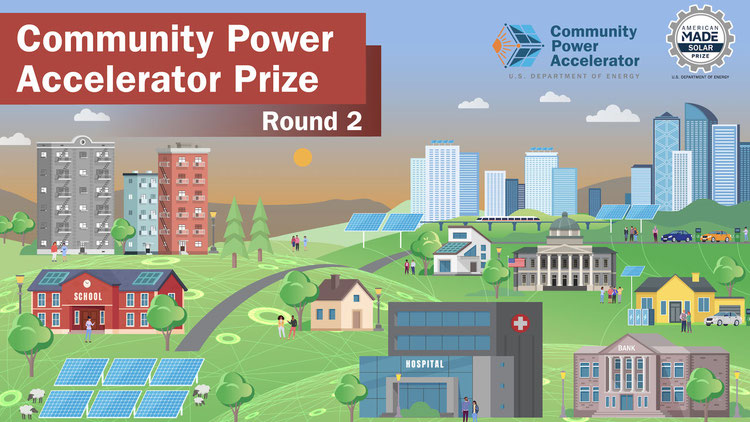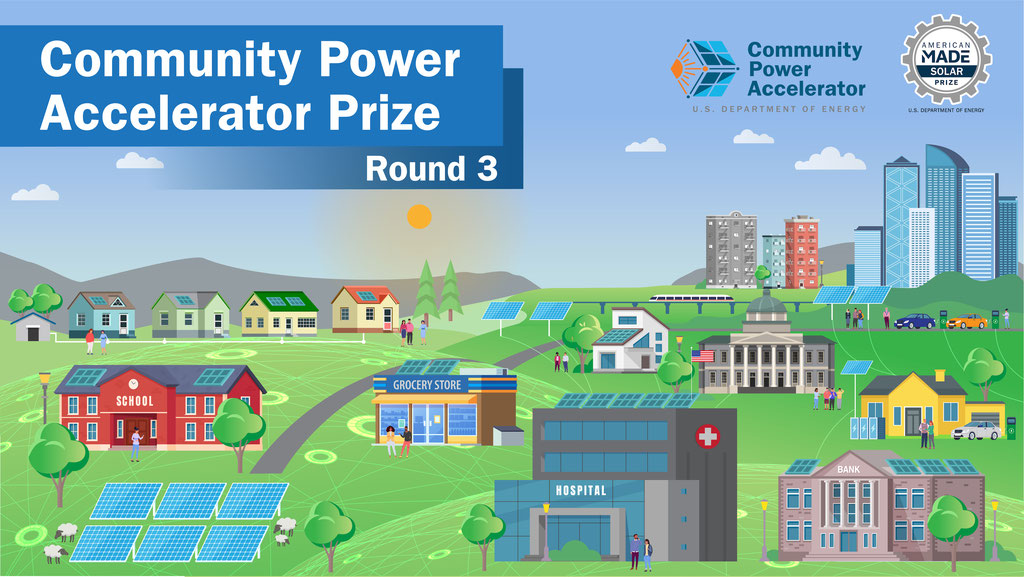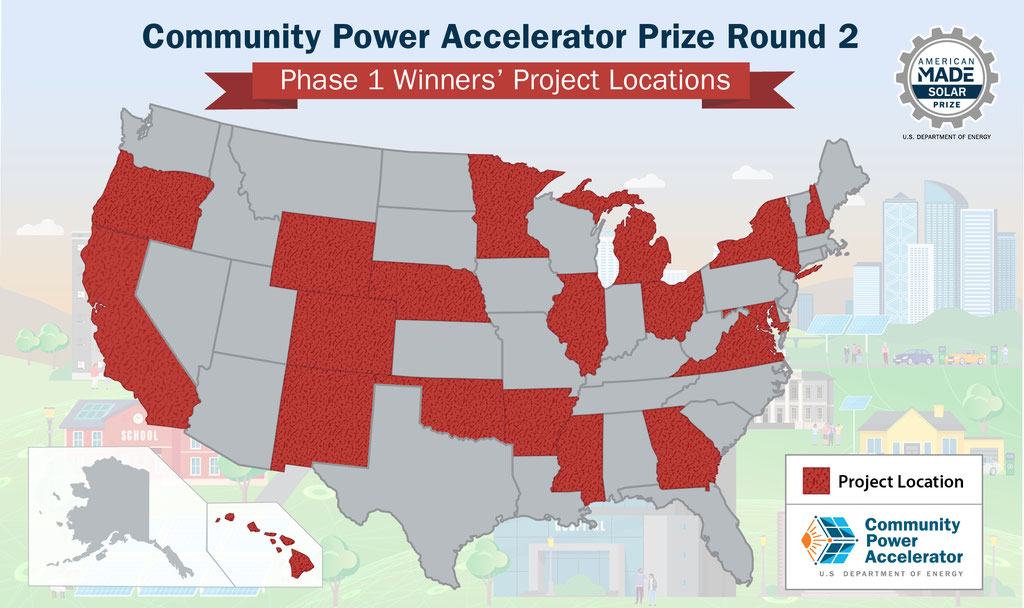Seven Additional Teams Move on to Round 2 Phase 3!
The U.S. Department of Energy’s Solar Energy Technologies Office today announced the seven additional teams moving on to Phase 3 of the Community Power Accelerator Prize Round 2. Winning teams will receive a $200,000 cash prize for completing the phase requirements and begin working toward their Phase 3 goals.
In the final phase of this competition, teams are challenged with securing 100% investment of their community solar portfolio of 2+ projects that equal in aggregate of at least 1 MW, and each of which include at least two of the Five Meaningful Benefits. Competitors that meet the Phase 3 requirements will be awarded a cash prize of $150,000.
Congratulations to the following teams:
- Citizen Energy, LLC (Washington, D.C.)
- Enterprise Community Development (Silver Spring, MD)
- Mississippi Energy Developers (Lena, MS)
- OneEnergy Renewables (Seattle, WA)
- Powerhouse Energy 360 (Atlanta, GA)
- Prosperity Works (Albuquerque, NM)
- Tribuquent (Bradenton, FL)
Learn more about the innovative teams moving on to Phase 3 in the Teams tab, and find detailed information about their Phase 3 deliverables in the Official Rules.
Plus, stay tuned to find out who will be named a Phase 3 winner for Round 2! (Winner announcements will occur throughout the following year.) And don’t forget to follow Round 3 of the Community Power Accelerator Prize on HeroX to see which organizations will be crowned Phase 1 winners for their groundbreaking solutions and impactful plans to expand solar across the U.S. in the coming years.












